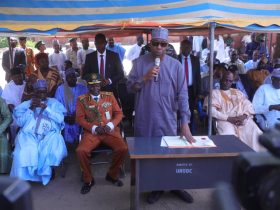Education leaders and experts in open and distance learning from across West Africa have convened in Abuja for a landmark consultative meeting aimed at creating a regional framework for the adoption and implementation of micro-credentials.
The event, themed “Commonwealth Credit Transfer Framework: Micro-Credentials in a Digital Age”, was organized by the Regional Training and Research Institute for Open and Distance Learning (RETRIDOL) of the National Open University of Nigeria (NOUN), in partnership with the Commonwealth of Learning (COL).
Micro-credentials—short, targeted certifications that validate specific skills or knowledge—are increasingly recognized as an innovative alternative to traditional degrees. They offer flexible, accessible learning pathways, particularly in the digital era, and are often developed in collaboration with industry to meet real-world workforce needs.
Declaring the event open, NOUN Vice-Chancellor, Professor Olufemi Peters, emphasized the transformative potential of micro-credentials for education across the region. “They offer an agile, skills-based approach to learning that prioritizes competencies over time-bound qualifications,” he said. “By aligning learning with industry expectations, micro-credentials enhance employability and access to lifelong learning.”
Professor Peters expressed confidence that the two-day workshop would culminate in a comprehensive guideline to support the integration of micro-credentials within national and regional education systems.
Director of RETRIDOL, Professor Christine Ofulue, underscored the value of micro-credentials in fostering learner mobility, enabling personalized education experiences, and promoting cross-border recognition of qualifications across West Africa.
President of the Commonwealth of Learning, Professor Peter Scott, highlighted the importance of adapting to global educational trends. “As technology reshapes our world, our education systems must evolve to remain relevant. Micro-credentials are part of that future,” he stated.
In his remarks, Dr. Roland Kouakou, Director of Education, Science, and Culture at the ECOWAS Commission, expressed optimism that the initiative would democratize education across the sub-region. “Micro-credentials can bridge gaps in access, providing learners with the skills needed for a dynamic and competitive future,” he noted.
The regional meeting brought together participants from Ghana, The Gambia, Sierra Leone, Cameroon, and Nigeria, all working collaboratively to lay the foundation for a unified credit transfer and credentialing framework across West Africa.
This initiative marks a critical step toward transforming education systems to meet the demands of a digital, skills-driven economy.











Leave a Reply